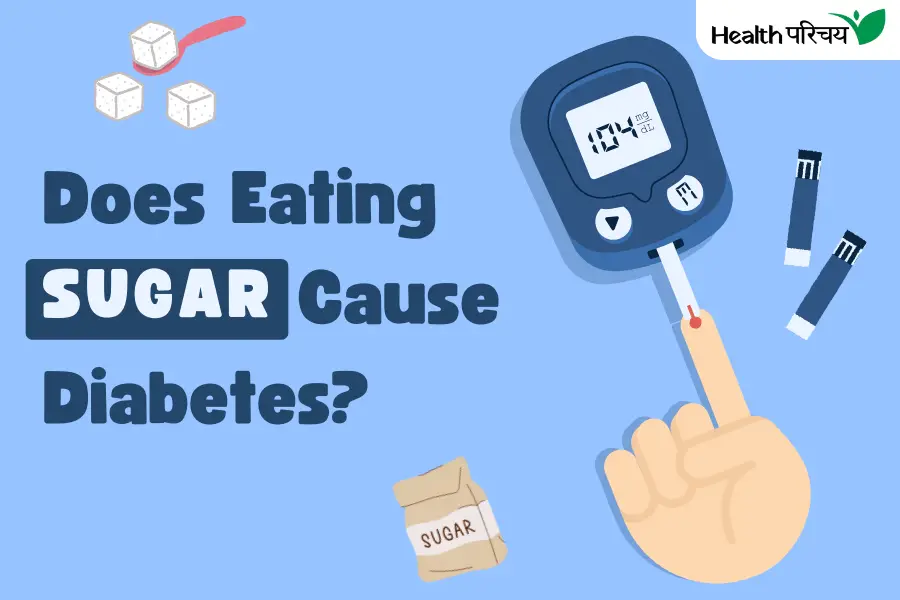Does Sugar Cause Diabetes: Diabetes has become a common health issue worldwide, affecting millions of people across all age groups. While many believe that eating too much sugar directly causes diabetes, the reality is more complex. To clarify the connection between sugar and diabetes, we consulted certified Indian nutritionist Dr. Preeti Seth. Here’s what she shared about the relationship between sugar consumption and diabetes.
Understanding the Role of Sugar in Diabetes
Dr. Preeti explains that the idea of sugar being the sole culprit behind diabetes is a common misconception. All foods ultimately break down into glucose (sugar) in the body. However, the glycemic index (GI) and fiber content of a food determine how quickly sugar is absorbed into the bloodstream.
For instance, fruits are rich in natural sugars but have a low glycemic index, making them less harmful for people with or at risk of diabetes. Unlike processed sugars, the fructose in fruits has a minimal impact on plasma glucose levels and can be included in a balanced diabetic diet.
Why Does Diabetes Occur?
Excessive sugar intake does not directly cause diabetes. Instead, it occurs when:
- The body cannot produce sufficient insulin.
- The body’s cells become resistant to insulin.
Both conditions lead to elevated blood sugar levels, resulting in diabetes symptoms such as excessive thirst, frequent urination, and unexplained weight loss.

Tips to Prevent Diabetes
1. Avoid Processed Foods and Sugary Beverages
Foods like packaged juices, soft drinks, and processed snacks are high in added sugars and can increase the risk of diabetes. Even seemingly healthy options like “oats biscuits” often contain hidden sugars. Opt for fresh fruits over processed alternatives.
2. Choose the Right Type and Amount of Sugar
Glucose is essential for the body to generate energy and support brain function. Insufficient sugar intake can lead to fatigue and difficulty concentrating. However, focus on consuming natural sugars from sources like fruits rather than refined or processed sugars.
3. Adopt a Healthy Lifestyle
Maintaining a balanced diet and staying physically active are crucial for preventing diabetes.
- Include fiber-rich foods like vegetables, almonds, and walnuts in your meals.
- Avoid unhealthy fats and use heart-friendly cooking oils.
- Keep your weight in check, especially if your waist-to-hip ratio is high.
- Stick to a regular sleep schedule and reduce screen time.
Also Read: 5 Incredible Benefits of Quitting Sugar for Just One Week
Conclusion
You don’t need to eliminate sugar entirely from your diet. The key is moderation and sourcing your sugar from natural, nutrient-rich foods. Combine this with a healthy lifestyle, regular exercise, and a balanced diet to significantly reduce the risk of diabetes.
Understanding the real connection between sugar and diabetes can help you make informed dietary choices and lead a healthier life.







Leave a Reply